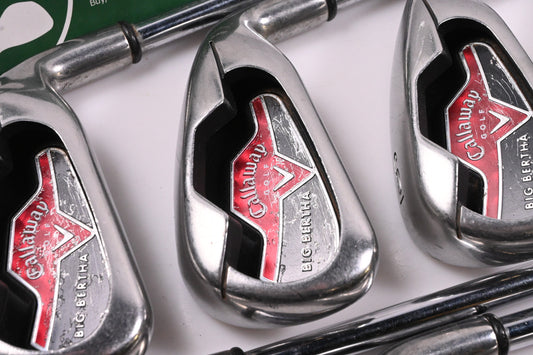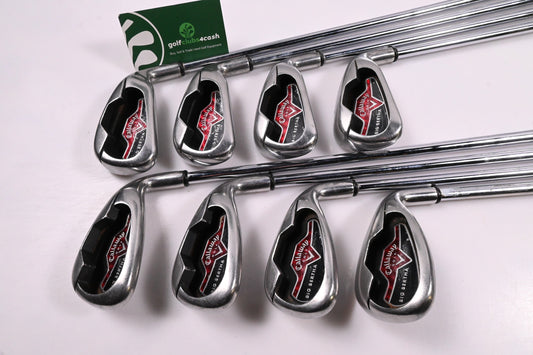

Golf club forgiveness… what’s it all about?
At golfclubs4cash we’re committed to making golf as accessible as possible to all, and that’s why we’ve developed a huge library of resources that are aimed at those getting into golf for the first time. It includes a golf jargon-buster, an ultimate beginner’s guide to golf, a golfing FAQ for beginners, and of course our Ace Series which tells you everything you need to know about each type of golf club.
This time we turn our attention to golf club forgiveness. It’s mentioned in pretty much any golf club review you read, and it’s a major consideration for golfers of all abilities. So let’s find out what it means, why it matters and what you should think about when choosing your own golf clubs.
What does golf club forgiveness mean?
Put as simply as possible, golf club forgiveness describes how easy a club is to use. A ‘forgiving’ golf club is one that has been designed to mitigate the issues caused by a poor swing, or bad contact with the ball (sometimes called a mishit). Even if your swing is less than perfect, it maximises your chance of a decent shot by compensating for your technique. It follows, then, that a beginner golfer should be looking out for a more forgiving golf club (sometimes called game improvement clubs), and it’s less of a consideration for lower-handicappers who have a more refined technique.
When designing a forgiving golf club, the aim is to increase the club’s moment of inertia (MOI), and lower the centre of gravity.

What makes a golf club forgiving?
There are various design elements that make a golf club forgiving, and perhaps the most important one is the size and loft of the club face. With a greater surface area available for the club to make contact with the ball, you stand a greater chance of making contact with the club’s sweet spot, leading to a straighter shot. And a higher degree of loft will give you a higher trajectory, too. Forgiving golf clubs also tend to have a lighter graphite shaft for ease of use, and the weight placement and distribution in the clubhead can also make a difference.
Do I need a forgiving club if I’m an intermediate golfer?
Golf club forgiveness is still a consideration no matter your ability, so anyone who is still working on refining their shots will benefit from using a club with a degree of forgiveness. If you’re playing off a high handicap, then yes, forgiveness is still a useful consideration. Lower handicappers and professional golfers don’t tend to focus on forgiveness quite so much, but ultimately it all comes down to what feels right in your hands.
Looking for a new set of irons? Browse our latest forgiving iron sets below.


Callaway Big Bertha 2002 Irons / 3-10i+GW / Firm Flex Callaway RCH 75


Callaway Big Bertha 2002 Irons / 3-PW / Uniflex Memphis 10 98 Shaft


Callaway Big Bertha 2002 Irons / 4-10+GW+SW / Uniflex Callaway Big Bertha


Callaway Big Bertha 2002 Irons / 4-8i / Uniflex Callaway Big Bertha Steel Shafts


Callaway Big Bertha 2002 Irons / 4-PW+SW / Uniflex Callaway Big Bertha Shafts


Callaway Big Bertha 2002 Irons / 5-10i+PW+SW / Uniflex Callaway Shafts


Callaway Big Bertha 2002 Irons / 6-10 / Firm Flex Callaway RCH 75 Shafts


Callaway Big Bertha 2006 Irons / 4-PW+SW / UniFlex Callaway Shafts
How do I find out more about forgiveness for each type of club?
Our Ace Series is the place to find out more about forgiveness design elements and considerations for each type of golf club. Our Ace Series - Drivers is a great place to start.
Want to build your own set of forgiving golf clubs? Check out how Euan from our Edinburgh golfclubs4cash store got on when he was challenged to build a full set of forgiving golf clubs for under £500.
Subscribe to our YouTube channel and follow us on Instagram for plenty more golf content like this.









